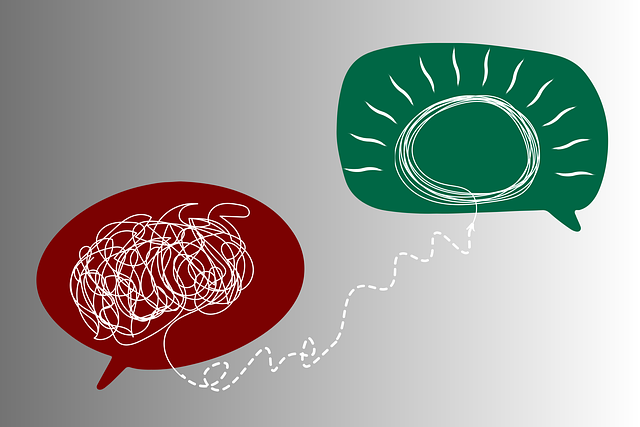Lone Tree Mindfulness Therapy offers swift and tailored crisis intervention services, prioritizing present-moment awareness and emotional regulation. Their approach focuses on active listening, emotion validation, and teaching practical skills to stabilize clients and build resilience. Through open dialogue sessions, stress management workshops, and post-crisis care, they empower individuals to navigate trauma, reduce burnout, and adapt to future challenges with greater emotional strength. Lone Tree Mindfulness Therapy's holistic methods, grounded in evidence-based practices, are accessible through their podcast series, contributing to wider awareness and trauma support services.
In moments of crisis, effective intervention strategies are paramount for fostering mental health and resilience. This article guides you through essential aspects of crisis intervention, highlighting the critical role played by practices like Lone Tree Mindfulness Therapy. We explore evidence-based techniques from understanding the cornerstone principles of crisis support to practical interventions, post-crisis care, and prevention strategies aimed at building long-term resilience.
- Understanding Crisis Intervention: A Cornerstone of Mental Health Support
- The Role of Lone Tree Mindfulness Therapy in Crisis Management
- Practical Strategies for Effective Intervention
- Post-Crisis Care and Prevention Techniques for Long-Term Resilience
Understanding Crisis Intervention: A Cornerstone of Mental Health Support

Crisis intervention is a critical component of mental health support, offering immediate and targeted assistance during times of severe distress or traumatic events. At Lone Tree Mindfulness Therapy, we recognize that effective crisis intervention can be a game-changer in helping individuals navigate challenging situations. Our approach emphasizes rapid response, focusing on empowering clients with coping strategies to manage acute stress, anxiety, or panic. By providing a safe and non-judgmental space, our trained therapists guide them through the crisis, ensuring they feel heard, understood, and supported.
This process involves active listening, validation of emotions, and teaching practical skills to cope with intense feelings. The goal is not just to stabilize the individual but also to foster resilience, helping them regain a sense of control and perspective. Our Mental Wellness Podcast Series Production often delves into crisis intervention techniques, reflecting the importance of widespread access to such guidance. We believe that equipping individuals with tools to manage crises can lead to long-lasting improvements in mental wellness and overall well-being, serving as a crucial step toward trauma support services.
The Role of Lone Tree Mindfulness Therapy in Crisis Management

In moments of crisis, whether it’s a sudden traumatic event or an ongoing mental health struggle, Lone Tree Mindfulness Therapy offers a unique and effective approach to intervention. This therapeutic method centers around cultivating present-moment awareness and emotional regulation skills, empowering individuals to navigate challenging situations with enhanced resilience. By focusing on the here and now, clients can gain clarity, reduce anxiety, and make more thoughtful decisions during crises.
Incorporating Lone Tree Mindfulness Therapy into crisis management strategies is a game-changer in the field of mental health. It provides a complementary tool for professionals, offering techniques that encourage self-soothing, mindfulness exercises tailored to individual needs, and coping mechanisms grounded in evidence. This therapy’s emphasis on mental wellness encourages individuals to actively participate in their healing process, fostering a sense of autonomy and empowerment alongside professional support. Moreover, regular practice of these mindfulness techniques can contribute to long-lasting benefits, enhancing one’s overall mental health policy analysis and advocacy efforts.
Practical Strategies for Effective Intervention

In the realm of crisis intervention, a strategic approach is key to mitigating distress and fostering recovery. At Lone Tree Mindfulness Therapy, we’ve developed practical strategies that prove effective in various settings. One of our core techniques revolves around encouraging individuals to engage in open dialogue, creating a safe space for them to express their thoughts and feelings without judgment. This crisis intervention guidance empowers people to process their emotions, gain perspective, and make informed decisions.
Moreover, we emphasize the importance of stress management workshops within organizations to proactively address burnout prevention. These workshops teach valuable coping mechanisms, mindfulness techniques, and resilience-building skills. By equipping individuals with such tools, we enable them to effectively navigate challenging situations before they escalate into crises. This holistic approach, inspired by the principles of Burnout Prevention, ensures that support is not merely reactive but proactive, empowering individuals and communities alike.
Post-Crisis Care and Prevention Techniques for Long-Term Resilience

Post-crisis care is an integral part of fostering long-term resilience and preventing future setbacks. Following a traumatic event, individuals often experience a range of emotions and may require support to navigate through this challenging period. Lone Tree Mindfulness Therapy offers tailored interventions to address these needs. One key aspect is providing a safe and non-judgmental space for clients to express their feelings openly, which helps in processing trauma and cultivating emotional regulation skills.
Additionally, the therapy focuses on implementing Empathy Building Strategies that encourage clients to cultivate positive thinking and promote mood management techniques. By teaching individuals how to recognize and challenge negative thought patterns, they can enhance their overall well-being and build a stronger foundation for resilience. These strategies empower clients to take proactive steps towards recovery, ensuring they have the tools needed to navigate future crises with greater adaptability and emotional strength.
In conclusion, crisis intervention strategies play a vital role in mental health support, with techniques like Lone Tree Mindfulness Therapy offering effective management tools. By understanding these interventions and implementing practical strategies, we can enhance post-crisis care and foster long-term resilience. This comprehensive approach ensures that individuals navigate challenges with the necessary resources for a brighter future.













